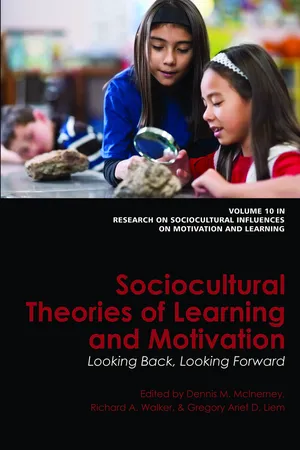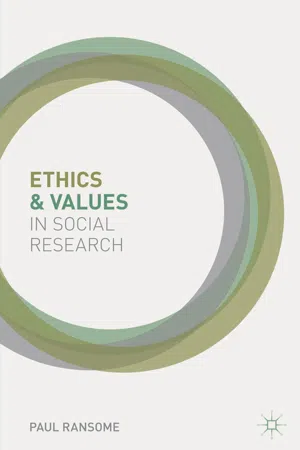Social Sciences
Research Considerations
Research considerations in social sciences encompass various factors that researchers must take into account when designing and conducting studies. These considerations may include ethical guidelines, research methodologies, data collection techniques, and the potential impact of the research on individuals and communities. By carefully addressing these considerations, researchers can enhance the validity and reliability of their findings while minimizing potential harm.
Written by Perlego with AI-assistance
Related key terms
1 of 5
5 Key excerpts on "Research Considerations"
- eBook - PDF
Learning to Research and Researching to Learn
An Educator's Guide
- Annette Hilton, Geoff Hilton(Authors)
- 2020(Publication Date)
- Cambridge University Press(Publisher)
We continue the focus on practical considerations by revisiting research questions: we note the practical considerations that are involved when formulating initial questions and planning a research project. Other important practicalities of research discussed are ethics and ethical approval, which are essential considerations that are central to any research. Once again, some of the procedures that need to be followed will differ depending on the context of the research (e.g. school versus university, in-service versus pre-service and postgraduate research versus coursework), but the underlying principles of ethical research remain the same. Ethical principles and application processes are the focus of the latter part of the chapter. PLANNING PRACTITIONER RESEARCH: SOME PRACTICAL CONSIDERATIONS The decision to conduct practitioner research has been made and a proposal has been drafted, and now some practicalities need to be addressed. Remember that the research process is not exactly linear and not always lock step; differing considerations will need to be addressed by each researcher for each topic. While it would be impossible to articulate all possible practical considerations, suffice it to say that practitioner researchers need to be determined and flexible. With these characteristics, no matter what challenges are faced, the researcher will generally find a way forward. When do I conduct research? In this section, some of the practicalities are described separately for pre- and in-service educators. Clearly, postgraduate researchers may have considerations that reflect a com- bination of these. Pre-service educators For education students engaging in research as part of a study program, the practical considerations of research are most often based around restricted time to conduct the research and somewhat restricted access to schools or classrooms. - eBook - PDF
A Handbook for Social Science Field Research
Essays & Bibliographic Sources on Research Design and Methods
- Ellen Perecman, Sara R. Curran(Authors)
- 2006(Publication Date)
- SAGE Publications, Inc(Publisher)
First, follow-up is rare, and subsequent required reporting to the IRB panel is limited. Second, the scope of ethical considerations does not completely address the nature of social science research, especially if the pro-ject is of some duration, the initial approach is exploratory and open-ended, and the social dimensions of the project are complicated. As research pro-jects lengthen and relationships with those in the locale deepen, the research Chapter 11 ♦ Research Ethics are Essential —— 205 may become richer, but the burdens on the individual respondents and the community may be taken for granted. Or if the research is exploratory, there may be heightened concerns about whether the research procedures will really reveal anything new or open up possibilities for taking research in unanticipated directions that may have subsequent ethical considerations warranting some ethical review. But even more important, social science research is necessarily socially interactive, and by definition, ethical stances and expectations will be invoked in the development of trustworthy rela-tionships between researchers and those in the research site. Thus the weight of ethical responsibilities lies with the researcher and the coping skills gained through disciplinary training (Lederman 2004). For other formal guidance on ethical concerns that exist within the regula-tory domain and beyond it, researchers can sometimes turn to their discipli-nary codes of ethics. These, however, vary dramatically across disciplines, and for some disciplines they are nonexistent. Anthropology, sociology, history, political science, and psychology have well-publicized codes. 17 Each of these disciplines offers guidelines about the ethical issues pertaining to its method-ological approaches as well other dimensions of the profession and discipline. - eBook - PDF
- Mel Churton, Anne Brown(Authors)
- 2017(Publication Date)
- Red Globe Press(Publisher)
As we shall see, the quest for funding has become increasingly important in recent years. While sociologists may still try to select the technique that best meets the needs of their research, the demand for a certain type of data from an external agency may limit the methods used in the study. Increasingly sociologists are being required to consider the ethical impli-cations of their research. The British Sociological Association lays down clear ethical guidelines for conducting sociological research which relate to sensitivity, the gaining of permission from respondents and ensur-ing that there are no negative consequences of research for those par-ticipating. (See below, pages 345ff., for a more detailed discussion on ethics.) You will find the guidelines on the British Sociological Association (BSA) website (www.britsoc.co.uk/equality/Statement + Ethical + Practice.htm), and those of the American Sociological Association (ASA) on theirs (www.asanet.org/cs/root/leftnav/ethics/code_of_ethics_table_of_contents). This focus on good ethical practice is perhaps linked to initiatives such as the Citizen’s Charter and the promotion of civil rights in party politics, and has led to far greater awareness of the need for sensitivity in the research process. Also, the numbers of sociology students who undertake research, whether on a small-scale basis at school or college (even though the course-work component no longer exists) or as part of an undergraduate degree programme, has increased, prompting the need for clear ethical research guidance. The above issues demonstrate that choice of method is not straightforward, and in practice is likely to be a compromise between competing external influ-ences and the researcher’s theoretical or philosophical perspective. This chapter aims to explore such influences/processes via a number of research studies and practical exercises. - Dennis M. McInerney, Richard A. Walker, Gregory Arief D. Liem(Authors)
- 2016(Publication Date)
- Information Age Publishing(Publisher)
Thus, like all research, sociocultural research requires both content specific knowledge and awareness of research traditions and processes; however, sociocultural research necessitates the added dimension of thinking about the phenomenon in a way that sees the big picture of the embedded context in which it occurs. Sociocultural approaches don’t dic-tate research paradigms, but the socioculturalist does seek theories that provide insights as to the interplay of individual factors, social factors, Conceptual and Methodological Issues 19 and/or cultural factors and explain to some degree how these variables collectively impact human motivation and effort. Concepts in Reviewing Literature The sociocultural researcher must be to somewhat of a generalist in order to see the big picture of the socially situated context. Due to multi-ple domains of factors implicit in the sociocultural perspective, it is incumbent upon the sociocultural researcher to survey multiple litera-tures to obtain an overview of the key factors involved, from a variety of perspectives. This was helpful to me in my exploration of school culture (Schoen, 2010), as l came to see it as a context specific form of organiza-tional culture and was then able to build my research on relevant theory from the field of business management. The direction the research takes following the literature review is sub-ject to the wording of research questions and the researcher’s values, back ground, and orientation to research paradigms. I, like most pragmatists, believe that there is no single best research design that constitutes “better science.” Each research community and individuals within these commu-nities must ascertain for themselves which domain is most pervasive, which elements within the domains are most pertinent to understanding the phenomenon at hand, and which research methods best provide new insights.- eBook - PDF
- Paul Ransome(Author)
- 2013(Publication Date)
- Bloomsbury Academic(Publisher)
Under circumstances in which the main area of contention is political and ideological rather than scientific, the results of social research tend to provide ammunition for the opposing sides to sling at each other rather than producing CRITICAL APPROACHES IN SOCIAL RESEARCH 111 unambiguous ‘final’ results that everyone accepts as ‘true’. Under these cir-cumstances, the principal ethical consideration for the social researcher is to be aware that their findings are likely to be drawn into the wider ideologi-cal and political debates of the day, and to take account of the sensitivities of those who are likely to be affected by those debates. Ethical responsibility for research findings might extend well beyond the moment when results are published. Findings from the Wellings et al. (1994) study just referred to, for example, have been used both by social reactionaries as evidence of continuing low levels of homosexuality (thus reinforcing heterosexual hegemony) and by social progressives who claim that it demonstrates increasing levels of same-sex sexual interaction (thus undermining heterosexual hegemony). Ethical justification for adopting value standpoints in social research Although expressing a particular value standpoint imposes particular kinds of adjustments on the research process – adjustments that carry the research away from the standard positivist scientific model – it is possible to deploy arguments that offer an ethical justification for so doing. First, value commitment can be seen as merely an extension of the ordinary problem of researcher bias. There is nothing ethically novel about the idea that social researchers find it difficult to isolate themselves from the topics they are studying and so embracing this reality might offer a more realistic way forward. It could be argued, for example, that personal interest in the topic is a basic requirement of being able to carry out systematic research in the first place.
Index pages curate the most relevant extracts from our library of academic textbooks. They’ve been created using an in-house natural language model (NLM), each adding context and meaning to key research topics.




